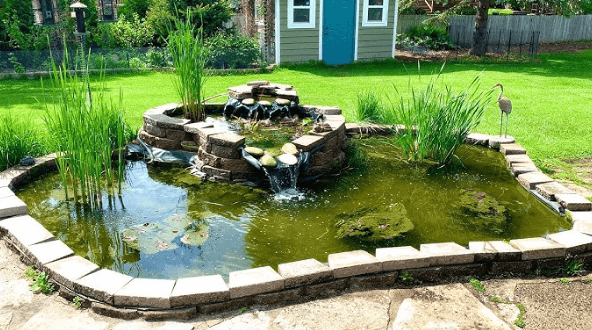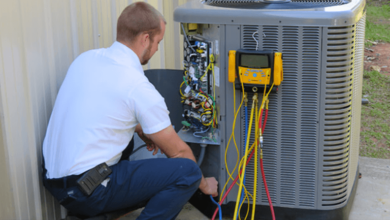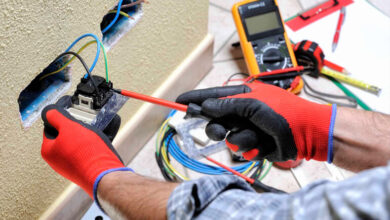Discover the Best Pond Filter for Koi Ponds & Garden Water Features

Introduction
Koi ponds and garden water features can turn an outdoor space into a peaceful sanctuary. Flowing water, colorful koi, and aquatic plants create beauty and relaxation, but keeping a pond clean and healthy requires proper maintenance. The most important component is a pond filter. A reliable pond filter ensures crystal-clear water, protects fish from harmful toxins, prevents algae blooms, and keeps the entire ecosystem balanced. In this article, we’ll explore the importance of pond filters, the different types available, how to select the right one, and which options work best for both koi ponds and decorative garden ponds.
Why Koi Ponds and Garden Features Need a Pond Filter
The Challenge of Koi Ponds
Koi fish are beautiful but demanding. They eat frequently, grow large, and produce significant amounts of waste. Without a pond filter, ammonia and nitrite levels quickly rise, leading to cloudy water and serious health risks for the fish. Because koi ponds are usually stocked heavily, strong filtration is essential to process fish waste, break down harmful compounds, and keep oxygen levels balanced.
The Needs of Garden Water Features
Even ponds without fish benefit from filtration. Leaves, pollen, dust, and decaying organic matter enter the water constantly. If these aren’t removed, the pond becomes cloudy and develops foul odors. A pond filter ensures that even decorative ponds remain fresh, clear, and visually attractive throughout the year.
How Pond Filters Work
A pond filter functions by cycling water through a system that removes impurities and supports natural balance. There are three key stages of filtration:
- Mechanical Filtration: Removes solid waste such as leaves, dirt, and uneaten food by trapping particles in filter sponges or mats.
- Biological Filtration: Uses filter media that encourages beneficial bacteria to grow. These bacteria break down toxic ammonia and nitrite into less harmful nitrate.
- UV Clarification: Many modern filters include a UV light chamber that kills microscopic algae cells, preventing green water and bacterial outbreaks.
Together, these processes create clear, safe water that supports fish health and pond aesthetics.
Types of Pond Filters
Different ponds require different filters, and understanding each type helps pond owners choose the right system.
Pressure Filters
Compact and easy to install, pressure filters are ideal for small to medium ponds. They use a sealed design, allowing water to be pumped uphill to a waterfall or return outlet. Many models include UV clarifiers, making them efficient for garden ponds with light to moderate fish loads.
Gravity Filters
Larger koi ponds often require gravity-fed filters. These systems handle high water volumes and include multiple chambers for mechanical and biological filtration. Gravity filters are designed to cope with the heavy waste load produced by koi, making them the most reliable choice for serious pond keepers.
Biological Filters
While all filters include some biological function, dedicated biological filters maximize the growth of beneficial bacteria. They are highly effective in stabilizing water chemistry, especially in ponds with large fish populations.
DIY and Budget-Friendly Filters
For smaller ponds, DIY solutions using containers, sponges, and filter media can be cost-effective. While not as powerful as commercial filters, they still improve water clarity and reduce maintenance.
Choosing the Best Pond Filter
The best pond filter depends on several factors.
- Pond Size and Depth: Always match the filter’s capacity to your pond’s water volume. Undersized filters struggle to keep up with demand.
- Fish Load: Koi produce more waste than goldfish or decorative ponds without fish, so choose a filter rated for a higher capacity than your pond’s actual size.
- Sunlight and Plants: Ponds exposed to direct sunlight are more prone to algae, making UV filtration particularly valuable.
- Ease of Maintenance: Some filters feature backwash systems or quick-release cleaning, reducing the time required for upkeep.
- Energy Efficiency: Efficient filters paired with the right pump can save significant energy over time.
Best Pond Filters for Koi Ponds
Koi ponds require strong, high-capacity filtration. Gravity-fed systems with multi-chamber designs are the gold standard. They combine mechanical mats, biological media, and often UV clarifiers. These filters ensure consistent water quality and stability, even in heavily stocked koi ponds. Some top-rated options include pressure-assisted gravity filters and bead filters, which provide excellent biological surface area while remaining compact.
Best Pond Filters for Garden Water Features
Garden ponds without koi can often rely on smaller, simpler systems. Pressure filters with built-in UV clarifiers are perfect for these ponds. They are discreet, easy to hide behind landscaping, and provide enough clarity to keep water sparkling. For very small water features, even compact box filters can be effective, especially when combined with aquatic plants that naturally assist in filtration.
Affordable Pond Filter Options
Not all pond owners need expensive high-end systems. Many affordable models combine mechanical and biological filtration in one unit. DIY filters can also provide good results for small ponds. For example, a simple barrel filter with bio-media and sponges can maintain excellent clarity in a decorative pond at a fraction of the cost. With proper maintenance, budget-friendly options deliver consistent performance.
Maintenance Tips for Long-Lasting Filtration
Even the best pond filter requires maintenance to perform effectively. Regularly rinse filter sponges and mats, but avoid using tap water that can kill beneficial bacteria—pond water is better for cleaning. Replace UV bulbs yearly to ensure effective algae control. Monitor water flow, as reduced circulation often indicates a clogged filter that needs cleaning. By maintaining the filter, pond owners extend its lifespan and ensure stable water quality year-round.
Frequently Asked Questions
Do I need a filter for a small pond?
Yes, even small ponds benefit from filters because they prevent algae growth, reduce odors, and protect fish if you keep any.
How often should I clean my pond filter?
Most filters should be checked weekly and cleaned every one to two weeks during warmer months when waste and algae build up faster.
Can I run a pond without a filter?
It’s possible in natural ponds with large ecosystems, but decorative ponds and koi ponds almost always need a filter to stay balanced.
What filter is best for koi?
High-capacity gravity filters or bead filters are best because they can handle heavy waste loads and maintain water quality for large koi.
What’s the difference between mechanical and biological filtration?
Mechanical filtration removes solid debris like dirt and leaves, while biological filtration supports beneficial bacteria that break down toxins.
Conclusion
A pond filter is the most important investment for anyone who wants a healthy, beautiful pond. Koi ponds demand powerful filtration to manage fish waste and maintain clear water, while garden water features benefit from compact systems that keep water sparkling and fresh. Whether you choose a high-capacity gravity filter, a convenient pressure filter, or even a budget-friendly DIY solution, the right filter will ensure that your pond remains a stunning and enjoyable feature for years to come. By matching your pond’s size and needs with the right filter, you not only protect fish and plants but also create a tranquil outdoor space that thrives in every season.




